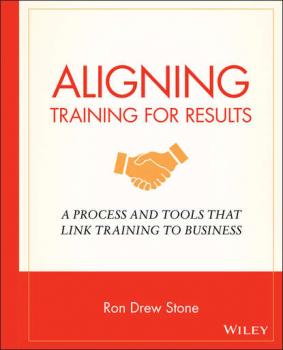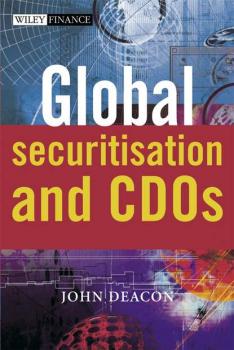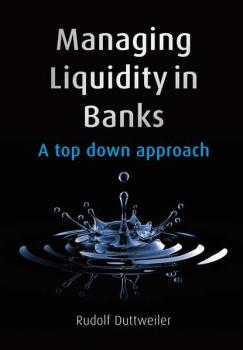Группа авторов
Список книг автора Группа авторовAligning Training for Results
What makes some training programs successful while others produce disappointing results? The answer, says Ron Stone, lies in the processes trainers employ to determine needs, design and develop programs, deliver the training, and partner to get business results. It is time to reexamine these processes, says the author, and bring them into the twenty-first century. In Aligning Training for Results Stone provides a potent, comprehensive, and versatile resource to help guide trainers through assessing, designing, and delivering training solutions that achieve real and measurable results. Note: CD-ROM/DVD and other supplementary materials are not included as part of eBook file.
Self Managed Superannuation Funds
RE: Self Managed Superannuation Funds: A Survival Guide Self managed superannuation funds (SMSFs) are the fastestgrowing sector of the superannuation industry. It’s no wonder, given the almost unlimited investment options available with SMSFs – including investing in property, unlisted managed funds and collectables. So, is it time you joined the increasing number of Australians taking control of their fi nancial future with an SMSF? Self Managed Superannuation Funds: A Survival Guide will help you manage one of the most important fi nancial assets you’ll ever own. Topics covered include: determining if an SMSF is for you selecting your own investments setting up your super fund managing the paperwork understanding trustees’ duties complying with legislation implementing tax-saving strategies.
Global Securitisation and CDOs
This is an essential book for any practitioner, researcher or student of securitisation – concise and accurate coverage of the key aspects of securitisation on all the main and secondary markets of the world. ?Alexander Batchvarov, Managing Director, International Structured Product Strategy, Merrill Lynch, London. «John Deacon's original book became the leading textbook for those genuinely interested in gaining a profound and detailed understanding of the arcane world of securitisation. The new, updated version confirms John's status as the top writer in this sector. Securitisation has moved on, becoming ever more complex in both its detail and its variety, but John's book never fails to deal with all the intellectual challenges posed, in a clear, logical and comprehensive fashion. A must for all practitioners- ? I thoroughly enjoyed it.» ?Robert Palache, Managing Director, Head of European Infrastructure Finance and Corporate Securitisation, Barclays Capi tal «Deacon?s book is an unparalleled treatise on all aspects of asset securitisation and CDOs and is ideal for use by both experienced market practitioners and by those new to the seemingly ever-expanding world of securitisation. The book comprehensively outlines the various structures encountered, ranging from true sale and future flow financings to synthetics and whole business, addressing not only the framework of the structures but also the regulatory and accounting implications. A must have reference book.» ?David Newby, Executive Director, ABN AMRO BANK N.V., Head of UK and Irish Securitisation, Head of European Commercial Real Estate Securitisation Synthetic credit derivatives technology, CDOs, the covered bond market, the mortgage-backed market and M&A financing have all come together to make securitization the fastest growing and most flexible area of the global credit markets. This authoritative work looks at the recent synthetic structures and credit derivatives used in CDOs and at the new Basel Capital Accord and addresses the framework of these structures as well as the regulatory and accounting implications. You'll find truly global insights, coverage of both the financial and legal aspects of securitization, and a glossary of market and legal terminology. Order your copy of this comprehensive update on the development of securitization today!
Credit Derivatives Pricing Models
The credit derivatives market is booming and, for the first time, expanding into the banking sector which previously has had very little exposure to quantitative modeling. This phenomenon has forced a large number of professionals to confront this issue for the first time. Credit Derivatives Pricing Models provides an extremely comprehensive overview of the most current areas in credit risk modeling as applied to the pricing of credit derivatives. As one of the first books to uniquely focus on pricing, this title is also an excellent complement to other books on the application of credit derivatives. Based on proven techniques that have been tested time and again, this comprehensive resource provides readers with the knowledge and guidance to effectively use credit derivatives pricing models. Filled with relevant examples that are applied to real-world pricing problems, Credit Derivatives Pricing Models paves a clear path for a better understanding of this complex issue. Dr. Philipp J. Schönbucher is a professor at the Swiss Federal Institute of Technology (ETH), Zurich, and has degrees in mathematics from Oxford University and a PhD in economics from Bonn University. He has taught various training courses organized by ICM and CIFT, and lectured at risk conferences for practitioners on credit derivatives pricing, credit risk modeling, and implementation.
Implementing Value at Risk
Implementing Value at Risk Philip Best Value at Risk (VAR) is an estimate of the potential loss on a trading or investment portfolio. Its use has swept the banking world and is now accepted as an essential tool in any risk manager's briefcase. Perhaps the greatest strength of VAR is that it can cope with virtually all financial products, from simple securities through to complex exotic derivatives. This allows the risk taken, across diverse trading activities, to be compared. This said, VAR is no panacea. It is as critical to understand when the use of VAR is inappropriate as it is to understand the value VAR can add to a bank's understanding and control of its risks. This book aims to explain how VAR can be used as an integral part of a risk and business management framework, rather than as a stand-alone tool. The objectives of this book are to explain: What VAR is – and isn't! How to calculate VAR – the three main methods Why stress testing is needed to complement VAR How to make stress testing effective How to use VAR and stress testing to manage risk How to use VAR to improve a bank's performance VAR as a regulatory measure of risk and capital Risk management practitioners, general bank managers, consultants and students of finance and risk management will find this book, and the software package included, an invaluable addition to their library. Finance/Investment
Wall Street on Trial
The politics of business have become the business of politics. Across the world the lesson is clear: just as too much governmental interference leads to dysfunctional economies, left to its own devices the market is incapable of adequate self-regulation. The corporate malfeasance crisis in the United States has transformed global perceptions about the efficacy of regulatory structures in combating corrupt practices in private and public sectors. The design of effective corporate governance structures depends not just on internal factors but also on the inter-relationship between various actors that constitute wider governance: politicians, lobbyists, corporations and regulators. A Corrupted State: Wall Street on Trial breaks new ground by deconstructing the systemic flaws inherent in the model itself. It reveals that the 'rotten apple' theory, positing the problems in corporate America as merely the result of deviancy by an individual or a single firm, is an intellectual deceit not supported by the facts.
Risk-adjusted Lending Conditions
In order to operate their lending business profitably, banks must know all the costs involved in granting loans. In particular, all the expenses they incur in covering losses must be included. Provided loan risks can be calculated, it is possible in each case to charge a price that is appropriately adjusted for risk, thus making it possible to make high-risk loans. In «Risk-adjusted Lending Conditions» the author presents a model, to measure and calculate loan risks, showing how it functions and how it may be applied. His approach has its origins in the ideas put forward by Black/Scholes in 1973, and thus owes much to option price theory. From this the author has succeeded in developing a solution such that, whatever a company's debt position and however its balance sheet may be structured, any situation can be individually assessed. Building on this, he demonstrates how combinations of loans with the lowest possible interest costs can be tailor-made for any company. The book contains numerous examples, making it easy for practising bankers to see how the model may be applied
Going off the Rails
The capitalist model was developed in the 19th century and recent events have shown the difficulties of adapting this to the demands of the 21st century, in which human and social capital are of far greater importance than physical capital. In Going off the Rails, John Plender shows how corporate scandals, inflated boardroom pay, corporate governance disciplines and outmoded accountancy conventions have stretched the Anglo-American model to its limit and what the effects of this might be on globalisation and the capital markets.
Managing Liquidity in Banks
Liquidity risk is a topic growing immensely in importance in risk management. It has been much neglected by financial institutions and regulators in recent years and receives, in the course of the sub-prime crisis, sudden and great attention. This book is well-structured and provides a comprehensive and systematic approach to the topic. It will help risk controllers to systematically set up a liquidity risk framework in their bank. —Peter NEU, European Risk Team Leader, The Boston Consulting Group, and co author of Liquidity Risk Measurement and Management «Mr Duttweiler's book is a welcome addition to the literature on liquidity risk measurement and management. In addition to his contributions to liquidity risk theory and liquidity pricing, the author provides a good overview of all of the critical elements.» —Leonard Matz, International Solution Manager, Liquidity Risk and co-author of Liquidity Risk Measurement and Management Liquidity Risk Management has gained importance over recent years and particularly in the last year, as major bank failures have led to a re-evaluation of the significance of liquidity in stressed market conditions. Liquidity risk is closely related to market risk and solvency, suggesting its significance in times of volatile and 'bear' markets, where a single bank's failure can have dramatic effects on market liquidity. The term liquidity is not well-define, and a comprehensive understanding of its common elements is often missing within a banking organisation. In too many cases, liquidity risk management has not been developed with a coherent framework and generally accepted terms and methods, creating weaknesses in its structure and vulnerability to market risk. In this title, Duttweiler advances the study of quantitative liquidity risk management with the concept of the 'Liquidity Balance Sheet', which allocates portfolios into a specific structure, and consequently is able to account for potentially negative surprises so that the necessary buffers can be quantified. The book begins with an overview of liquidity as part of financial policy and highlights the importance of liquidity as part of a general business concept and as protector and supporter of a business as a going concern. The author examines the role o liquidity in helping managers to achieve high-level liquidity aims to support operating units to achieve business goals. He looks at quantitative methods of assessing a banks liquidity levels, including LaR and VaR, to establish an integrated concept in which liquidity is incorporated into the framework of financial policies. He also presents methods, tools, scenarios and concepts to create a policy framework for liquidity and to support contingency planning.
Financial Modelling in Practice
Financial Modelling in Practice: A Concise Guide for Intermediate and Advanced Level is a practical, comprehensive and in-depth guide to financial modelling designed to cover the modelling issues that are relevant to facilitate the construction of robust and readily understandable models. Based on the authors extensive experience of building models in business and finance, and of training others how to do so this book starts with a review of Excel functions that are generally most relevant for building intermediate and advanced level models (such as Lookup functions, database and statistical functions and so on). It then discusses the principles involved in designing, structuring and building relevant, accurate and readily understandable models (including the use of sensitivity analysis techniques) before covering key application areas, such as the modelling of financial statements, of cash flow valuation, risk analysis, options and real options. Finally, the topic of financial modelling using VBA is treated. Practical examples are used throughout and model examples are included in the attached CD-ROM. Aimed at intermediate and advanced level modellers in Excel who wish to extend and consolidate their knowledge, this book is focused, practical, and application-driven, facilitating knowledge to build or audit a much wider range of financial models. Note: CD-ROM/DVD and other supplementary materials are not included as part of eBook file.









